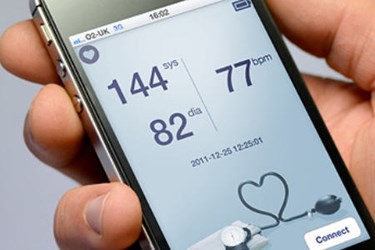Henry Ford Innovation Names Health App Winners

By Christine Kern, contributing writer

Thirty teams submitted ideas for wearable sensor apps in Davidson Digital Health Challenge.
The Henry Ford Innovation Institute has announced the winners in a new competition to design health apps, according to a press release. Among the winners were a system designed to record and encourage movement of hospital patients; a recovery tool for total hip replacement; and a monitoring system for night time low blood sugar.
As part of the competition, thirty teams of employees from Henry Ford Health System and Health Alliance Plan submitted ideas for applications wearable sensor technology that could improve outcomes, lower costs and increase patient engagement across the continuum of care. Ten semi-finalists were selected to take part in a two-session entrepreneurship education curriculum, with five finalists chosen to pitch for $10,000 in total prize money.
The challenge was made possible with the support of the William Davidson Foundation through the newly created Davidson Center for Entrepreneurs in Digital Health. Established with a $3 million, three-year grant, The Davidson Center aims to train top talent in the Detroit area to become leaders in the field of digital health and to accelerate the development of next generation healthcare technologies.
“The demand for innovation in healthcare is greater than in any other industry in the country right now,” says Scott Dulchavsky, M.D., Ph.D., CEO of the Henry Ford Innovation Institute. “The Davidson Fellowship not only offers a unique opportunity for personal development among the participants, but also serves as a catalyst for finding solutions to some of our biggest unsolved healthcare problems.”
The three winners from this year’s challenge were:
Grand Prize: Acute Care Mobility - Gwen Gnam, RN, MSN, and Dr. Ilan Rubinfeld
Their system uses activity monitors to track patient movement, including an interface that allows nurses to identify patients in need of physical activity, track patient progress, and motivate patients who need to get moving. This address the role of Inpatient mobility in patient recovery and hospital stay periods.
Second Prize: MiROM - Dr. Robert Keller and Dr. Nicholas Frisch
Looking to address dislocation after total hip replacement, which is currently one of the biggest drivers of readmission, MiROM promises a new alternative, using wearable sensors and smartphone technology to limit range of motion and encourage healthy recovery.
Third Prize: Sweet Dreams - Dr. Suraj Raheja
To address the challenge of diabetics who need to monitor and maintain proper blood sugar at night, Sweet Dreams uses wearable sensor to detect the vital signs associated with low blood sugar and alerts the patient, waking them up so they can address the problem.
